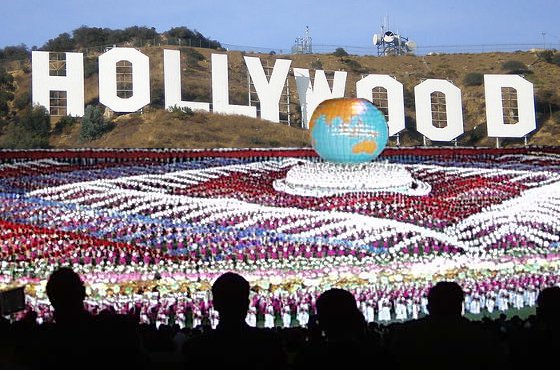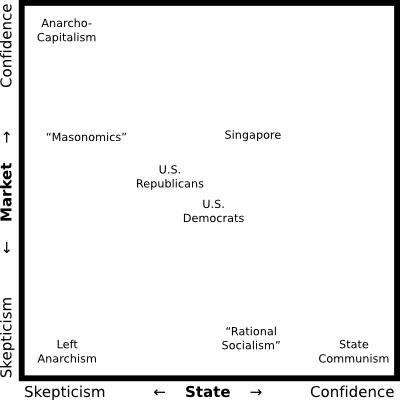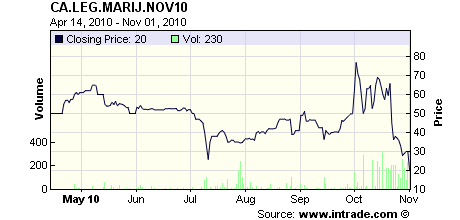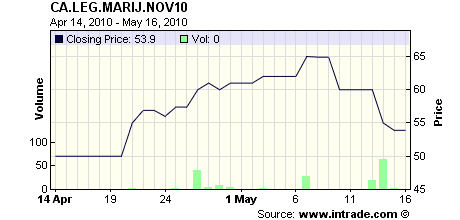We finished the text of Collaborative Futures on the book sprint’s fifth day and I added yet another chapter intended for the “future” section. This one may be the oddest in the whole book. You have to remember that I have a bit of an appreciation of leftish verbiage in the service of free software and nearby, and seeing the opportunity to also bundle an against international apartheid rant … I ran with it. Copied below.
I’ll post more about the book’s contents, the sprint, and the Booki software later (but I can’t help noting now that I’m sad about not getting to a chapter on WikiNature). For now no new observations other than that Adam Hyde of FLOSS Manuals put together a really good group of people for the sprint. I enjoyed working with all of them tremendously and hope to do so again in some form. And thanks to Transmediale for hosting. And sad that I couldn’t stay in Berlin longer for Transmediale proper, in particular the Charlemagne Palestine concerts.
Check out Mushon Zer-Aviv’s great sprint finish writeup.
Solidarity
There is no guarantee that networked information technology will lead to the improvements in innovation, freedom, and justice that I suggest are possible. That is a choice we face as a society. The way we develop will, in significant measure, depend on choices we make in the next decade or so.
Yochai Benkler, The Wealth of Networks: How Social Production Transforms Markets and Freedom
Postnationalism
Catherine Frost, in her 2006 paper Internet Galaxy Meets Postnational Constellation: Prospects for Political Solidarity After the Internet evaluates the prospects for the emergence of postnational solidarities abetted by Internet communications leading to a change in the political order in which the responsibilities of the nation state are joined by other entities. Frost does not enumerate the possible entities, but surely they include supernational, transnational, international, and global in scope and many different forms, not limited to the familiar democratic and corporate.
The verdict? Characteristics such as anonymity, agnosticism to human fatalities and questionable potential for democratic engagement make it improbable that postnational solidarities with political salience will emerge from the Internet — anytime soon. However, Frost acknowledges that we could be looking in the wrong places, such as the dominant English-language web. Marginalized groups could find the Internet a more compelling venue for creating new solidarities. And this:
Yet we know that when things change in a digital age, they change fast. The future for political solidarity is not a simple thing to discern, but it will undoubtedly be an outcome of the practices and experiences we are now developing.
Could the collaboration mechanisms discussed in this book aid the formation of politically salient postnational solidarities? Significant usurpation of responsibilities of the nation state seems unlikely soon. Yet this does not bar the formation of communities that contest with the nation state for intensity of loyalty, in particular when their own collaboration is threatened by a nation state. As an example we can see global responses from free software developers and bloggers to software patents and censorship in single jurisdictions.
If political solidarities could arise from the collaborative work and threats to it, then collaboration might alter the power relations of work. Both globally and between worker and employer — at least incrementally.
Free Labor
Trade in goods between jurisdictions has become less restricted over the last half century — tariff and non-tariff barriers to trade have been greatly reduced. Capital flows have greatly increased.
While travel costs have decreased drastically, in theory giving any worker the ability to work wherever pay (or other desirable quality) is highest, in fact workers are not permitted the freedom that has been given traders and capitalists. Workers in jurisdictions with less opportunity are as locked into politically institutionalized underemployment and poverty as were non-whites in Apartheid South Africa, while the populations of wealthy jurisdiction are as much privileged as whites in the same milieu.
What does this have to do with collaboration? This system of labor is immobilized by politically determined discrimination. It is not likely this system will change without the formation of new postnational orders. However, it is conceivable that as collaboration becomes more economically important — as an increasing share of wealth is created via distributed collaboration — the inequalities of the current sytem could be mitigated. And that is simply because distributed collaboration does not require physical movement across borders.
Workers in privileged jurisdictions will object — do object — to competition from those born into less privilege. As did white workers to competition from blacks during the consolidation of Apartheid. However, it is also possible that open collaboration could alter relationships between some workers and employers in the workers’ favor both in local and global markets.
Control of the means of production
Open collaboration changes which activities are more efficient inside or outside of a firm. Could the power of workers relative to firms also be altered?
Intellectual property rights prevent mobility of employees in so forth that their knowledge are locked in in a proprietary standard that is owned by the employer. This factor is all the more important since most of the tools that programmers are working with are available as cheap consumer goods (computers, etc.). The company holds no advantage over the worker in providing these facilities (in comparison to the blue-collar operator referred to above whose knowledge is bound to the Fordist machine park). When the source code is closed behind copyrights and patents, however, large sums of money is required to access the software tools. In this way, the owner/firm gains the edge back over the labourer/programmer.
This is were GPL comes in. The free license levels the playing field by ensuring that everyone has equal access to the source code. Or, putting it in Marxist-sounding terms, through free licenses the means of production are handed back to labour. […] By publishing software under free licences, the individual hacker is not merely improving his own reputation and employment prospects, as has been pointed out by Lerner and Tirole. He also contributes in establishing a labour market where the rules of the game are completely different, for him and for everyone else in his trade. It remains to be seen if this translates into better working conditions,higher salaries and other benefits associated with trade unions. At least theoretically the case is strong that this is the case. I got the idea from reading Glyn Moody’s study of the FOSS development model, where he states: “Because the ‘product’ is open source, and freely available, businesses must necessarily be based around a different kind of scarcity: the skills of the people who write and service that software.” (Moody, 2001, p.248) In other words, when the source code is made available to everyone under the GPL, the only thing that remains scarce is the skills needed to employ the software tools productively. Hence, the programmer gets an edge over the employer when they are bargaining over salary and working conditions.
It bears to be stressed that my reasoning needs to be substantiated with empirical data. Comparative research between employed free software programmers and those who work with proprietary software is required. Such a comparison must not focus exclusively on monetary aspects. As important is the subjective side of programming, for instance that hackers report that they are having more fun when participating in free software projects than they work with proprietary software (Lakhani & Wolf, 2005). Neither do I believe that this is the only explanation to why hackers use GPL. No less important are the concerns about civil liberties and the anti-authoritarian ethos within the hacker subculture. In sum, hackers are a much too heterogeneous bunch for them all to be included under a single explanation. But I dare to say that the labour perspective deserves more attention than it has been given by popular and scholarly critics of intellectual property till now. Both hackers and academic writers tend to formulate their critique against intellectual property law from a consumer rights horison and borrow arguments from a liberal, political tradition. There are, of course, noteworthy exceptions. People like Slavoj Zizek and Richard Barbrook have reacted against the liberal ideology implicit in much talk about the Internet by courting the revolutionary rhetoric of the Second International instead. Their ideas are original and eye-catching and often full of insight. Nevertheless, their rhetoric sounds oddly out of place when applied to pragmatic hackers. Perhaps advocates of free sotftware would do better to look for a counter-weight to liberalism in the reformist branch of the labour movement, i.e. in trade unionism. The ideals of free software is congruent with the vision laid down in the “Technology Bill of Rightsâ€, written in 1981 by the International Association of Machinists:
â€The new automation technologies and the sciences that underlie them are the product of a world-wide, centuries-long accumulation of knowledge. Accordingly, working people and their communities have a right to share in the decisions about, and the gains from, new technology†(Shaiken, 1986, p.272).
Johan Söderberg, Hackers GNUnited!, CC BY-SA, http://freebeer.fscons.org
Perhaps open collaboration can only be expected to slightly tip the balance of power between workers and employers and change measured wages and working conditions very little. However, it is conceivable, if fanciful, that control of the means of production could lead to a feeling of autonomy that empowers further action outside of the market.
Autonomous individuals and communities
Free Software and related methodologies can give individuals autonomy in their technology environments. It might also give individuals a measure of additional autonomy in the market (or increased ability to stand outside it). This is how Free and Open Source Software is almost always characterized, when it is described in terms of freedom or autonomy — giving individual users freedom, or allowing organizations to not be held ransom to proprietary licenses.
However, communities that exist outside of the market and state obtain a much greater autonomy. These communities have no need for the freedoms discussed above, even if individual community members do. There have always been such communities, but they did not possess the ability to use open collaboration to produce wealth that significantly competes, even supplants, market production. This ability makes these autonomous organizations newly salient.
Furthermore, these autonomous communities (Debian and Wikipedia are the most obvious examples) are pushing new frontiers of governance necessary to scale their collaborative production. Knowledge gained in this process could inform and inspire other communities that could become reinvigorated and more effective through the implementation of open collaboration, including community governance. Such communities could even produce postnational solidarities, especially when attacked.
Do we know how to get from here to there? No. But only through experimentation will we find out. If a more collaborative future is possible, obtaining it depends on the choices we make today.




